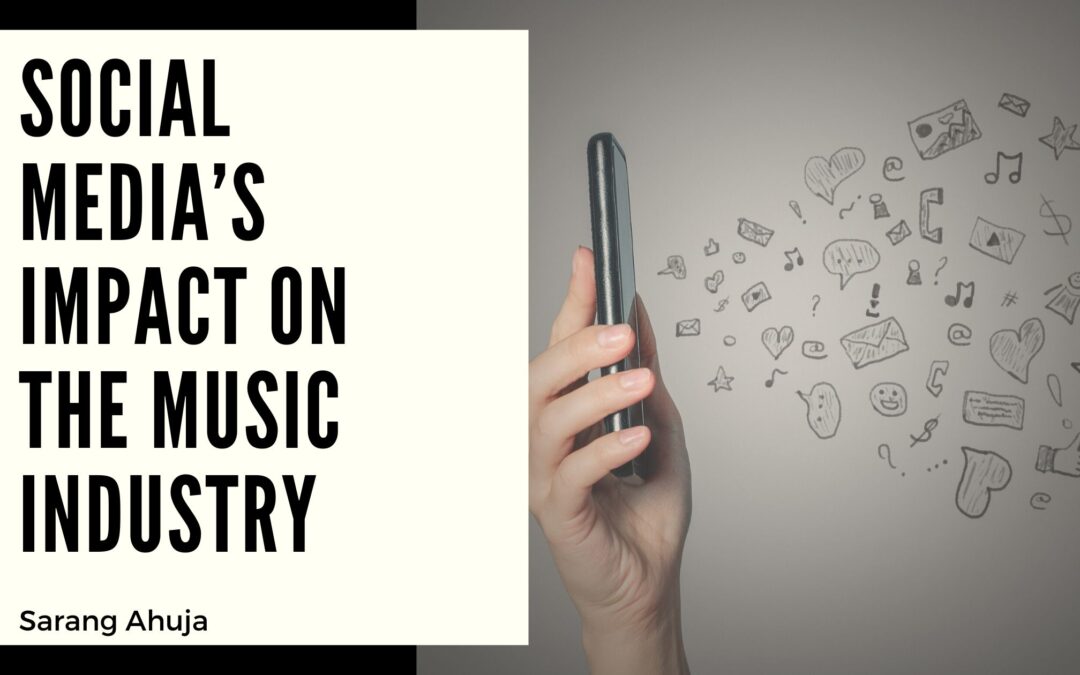Social media has profoundly impacted the music industry, revolutionizing how artists connect with their fans, promote their music, and build their careers. With the rise of platforms like Facebook, Twitter, Instagram, YouTube, and TikTok, social media has become an integral part of the music landscape.
Here are some of the significant ways in which social media has influenced the music industry:
Music Promotion and Distribution:
Artists can share music videos, teasers, and updates about upcoming releases, generating anticipation and excitement among their followers.
Discovering New Talent:
Social media has democratized the music industry. Platforms like YouTube have launched the careers of numerous artists who gained popularity through viral videos and covers.
Collaborations and Networking:
Social media facilitates collaborations among artists, producers, and other industry professionals. Musicians can connect with like-minded individuals, collaborate on projects, and explore new creative opportunities.
Real-Time Event Coverage:
During live performances, events, or tours, artists can use social media to provide real-time updates and connect with fans who may not be physically present.
Fan-Generated Content:
Social media platforms encourage fan-generated content, such as covers, remixes, and dance challenges. This user-generated content can further promote an artist’s music and extend its reach beyond its core fanbase.
Data Analytics and Insights:
Social media platforms provide valuable data analytics and insights that artists and record labels can use to understand their audience better.
Viral Marketing and Trends:
Social media has given rise to viral marketing and trends that can quickly propel a song or artist to global fame. Catchy dances, challenges, or memes associated with a particular song can drive its popularity and create a shared cultural experience.
Crowdfunding and Fan Support:
Artists can use social media to crowdfund their projects, engage in fan-driven support, and offer exclusive merchandise or experiences to backers.
Feedback and Audience Testing:
Artists can use social media to test new music, videos, or concepts with their audience before official releases. Gathering feedback from fans helps refine and improve content based on real-time responses.
Despite its numerous benefits, social media’s impact on the music industry raises some challenges. For example:
Piracy and Copyright Concerns:
The ease of sharing and accessing music on social media platforms has raised concerns about copyright infringement and piracy. Artists and rights holders often struggle to control unauthorized sharing and protect their intellectual property.
Short Attention Spans:
With an overwhelming amount of content available on social media, grabbing and maintaining audience attention can be challenging. Artists must consistently engage their followers with compelling content to avoid getting lost in the noise.
Mental Health and Privacy:
The constant pressure to maintain a solid social media presence and interact with fans can affect artists’ mental health. Maintaining boundaries and privacy while engaging with fans can be a balancing act.
Social media has transformed the music industry in profound ways. It has given artists unprecedented opportunities to connect directly with their fans, promote music, and establish their brands. It has also democratized the industry, allowing emerging talent to gain exposure and success without traditional gatekeepers. However, social media poses challenges, such as piracy concerns and the pressure to maintain a constant online presence.

